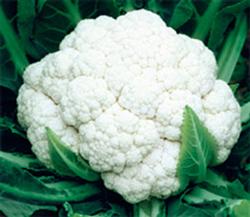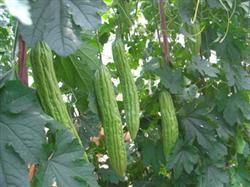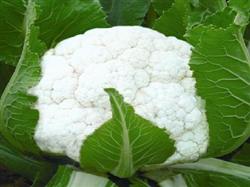Integrated control of diseases and insect pests in balsam pear

Virus disease. Harm seedlings and plants that have just bloomed and melons, make the growth point shrink, the leaves curl, the longer the plant grows, the smaller it becomes, and gradually wither and die. When the leaves begin to curl, spray 2- 3 times of 600 times of plant virus vaccine aqueous solution, or 800 times of virus A aqueous solution, or 600 times of plant growth promoter aqueous solution for prevention and control, spray once every 7- 10 days. Powdery mildew. When the disease occurs during flowering and fruiting, the leaves are covered with white powder, which causes the leaves to lose green and yellow, causes premature senescence of the plants, leads to interval flowering and fruiting and deformity of young melons, and shortens the harvest period. When white powder appears on the leaves, the leaves should be sprayed once every 7- 10 days with 1500 times of myclobutanil aqueous solution, or 1000 times of triadimefon aqueous solution, or 600 times of sulfur suspending agent aqueous solution for prevention and control, continuously spraying 2- 3 times. Melon fruit fly. The larvae bore into the young melon harm, so that the young melon deformed, and early color, then rotten deterioration, but also issued a foul smell. In the young melon stage, spray the young melon with 1000 times of Regent aqueous solution, or 1500 times of Nongdile aqueous solution, or 2500 times of green kung fu aqueous solution for 2- 3 times, once every 4- 5 days, and remove the abnormal fruit in time, burn or bury it outside the garden. Worker spider. harm leaves, suck juice, make leaves chlorosis, plant premature senescence, young melon can not expand, cause interval flowering and young melon deformity, shorten harvest period, reduce yield and quality, during balsam pear growth and development period, pay attention to check leaves, find pink needle size larvae adsorbed on leaves, namely continuously spray 2- 3 times of 1000 times of mite dead water solution, or 1500 times of mite cleaning water solution, or 1000 times of Lesben water solution for prevention and control, Spray once every 7- 10 days. Aphids, whiteflies, tea mites. Harm leaves, prick and suck juice, weaken plants, affect flowering and melon, spread viruses, aggravate the occurrence and harm of virus diseases, when aphids, whitefly and tea yellow mites are found on leaves, spray 1500 times omethoate aqueous solution, or 1000 times aphids net aqueous solution, or 1000 times a piece of purified water solution on leaves. Scarab, Lymantria, Papilio, Spodoptera. Mainly bite leaves, reduce nutrient accumulation, affect flowering and fruit, so that young melon can not expand, yield significantly decreased, after each new leaf out, spray 800 times trichlorfon aqueous solution, or 1000 times dichlorvos aqueous solution to the leaf surface for control.
- Prev

Cultivation techniques of balsam pear in greenhouse
The high-yield and high-benefit cultivation techniques of balsam pear in winter warm plastic greenhouse selected the winter warm greenhouse with good lighting and strong heat preservation as the horticultural facilities for off-season cultivation of balsam pear, compared with cucumber, towel gourd and zucchini, balsam pear requires higher light intensity, higher temperature and poor resistance to low temperature and weak light. Balsam pear.
- Next

Pollution-free cultivation techniques of precocious cauliflower
Cauliflower has the characteristics of palatability and delicious taste. Siyang County has mastered the pollution-free cultivation technology of early-maturing cauliflower through two years of cultivation. Variety selection according to the local climate characteristics, you can choose Li Yuanfu, Shenliang generation, Shenlong extra large and other varieties with a growth period of 50-60 days. Sowing dew at the right time.
Related
- Where is it suitable to grow horseradish in China? it is expected to see the middle altitude horseradish in Alishan.
- How to prevent tomato virus disease reasonably? (Control methods included)
- Many people like to plant towel gourd on the balcony. What are the main points of this method and management?
- What crops can chili peppers be mixed with?
- Fertilization techniques and matters needing attention in Tomato
- What are the grafting techniques for peach seedlings in spring?
- Harm and control methods of root swelling disease of Chinese cabbage
- What are the pests of sweet potatoes? How to prevent and cure it?
- Symptoms, causes and Control methods of navel Rot in Tomato
- The cause of "Cucumber rotten bibcock" in Farmers' planting Cucumber and its Control Plan

